Wil. M. P. van der Aalst
OPerA: Object-Centric Performance Analysis
Apr 22, 2022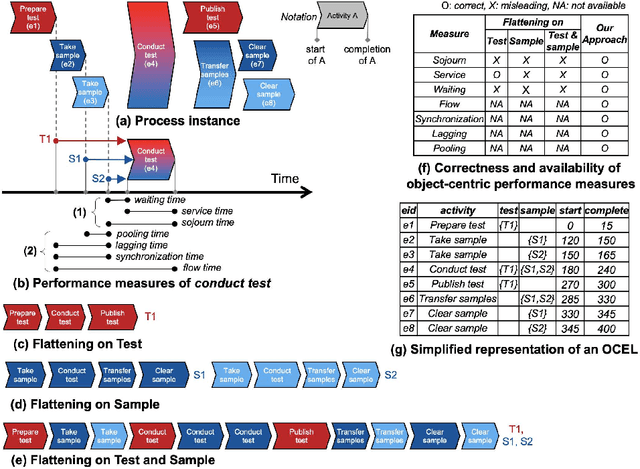
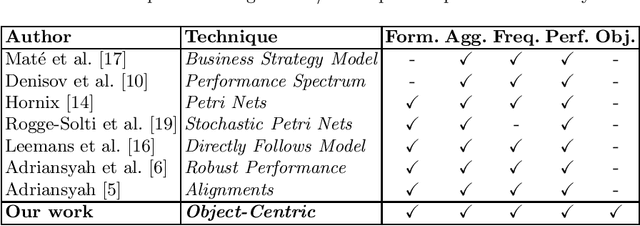

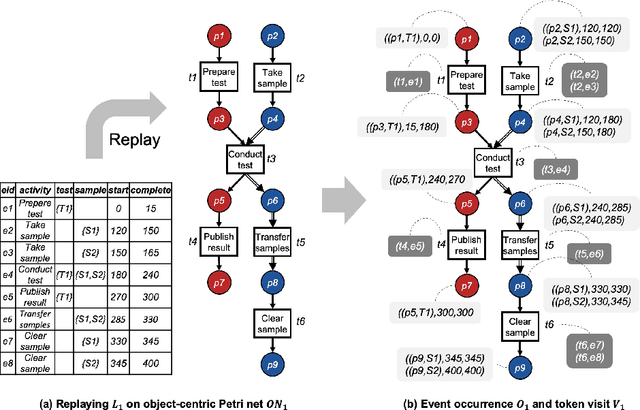
Abstract:Performance analysis in process mining aims to provide insights on the performance of a business process by using a process model as a formal representation of the process. Such insights are reliably interpreted by process analysts in the context of a model with formal semantics. Existing techniques for performance analysis assume that a single case notion exists in a business process (e.g., a patient in healthcare process). However, in reality, different objects might interact (e.g., order, item, delivery, and invoice in an O2C process). In such a setting, traditional techniques may yield misleading or even incorrect insights on performance metrics such as waiting time. More importantly, by considering the interaction between objects, we can define object-centric performance metrics such as synchronization time, pooling time, and lagging time. In this work, we propose a novel approach to performance analysis considering multiple case notions by using object-centric Petri nets as formal representations of business processes. The proposed approach correctly computes existing performance metrics, while supporting the derivation of newly-introduced object-centric performance metrics. We have implemented the approach as a web application and conducted a case study based on a real-life loan application process.
Inferring Unobserved Events in Systems With Shared Resources and Queues
Feb 27, 2021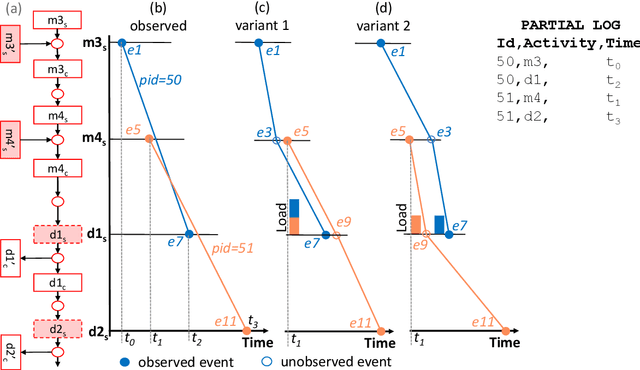
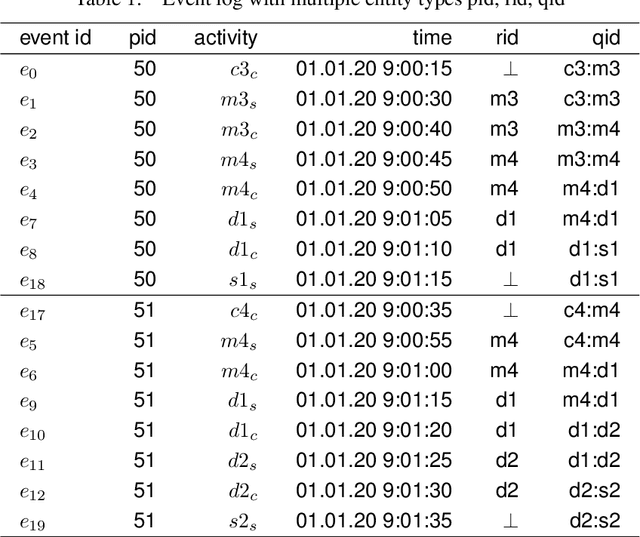
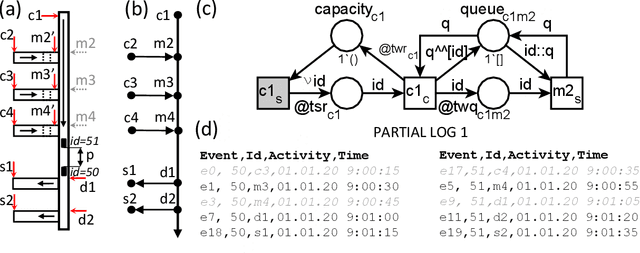
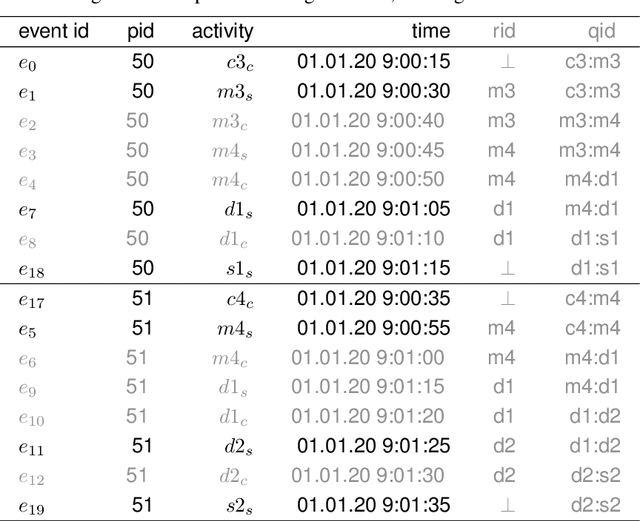
Abstract:To identify the causes of performance problems or to predict process behavior, it is essential to have correct and complete event data. This is particularly important for distributed systems with shared resources, e.g., one case can block another case competing for the same machine, leading to inter-case dependencies in performance. However, due to a variety of reasons, real-life systems often record only a subset of all events taking place. For example, to reduce costs, the number of sensors is minimized or parts of the system are not connected. To understand and analyze the behavior of processes with shared resources, we aim to reconstruct bounds for timestamps of events that must have happened but were not recorded. We present a novel approach that decomposes system runs into entity traces of cases and resources that may need to synchronize in the presence of many-to-many relationships. Such relationships occur, for example, in warehouses where packages for N incoming orders are not handled in a single delivery but in M different deliveries. We use linear programming over entity traces to derive the timestamps of unobserved events in an efficient manner. This helps to complete the event logs and facilitates analysis. We focus on material handling systems like baggage handling systems in airports to illustrate our approach. However, the approach can be applied to other settings where recording is incomplete. The ideas have been implemented in ProM and were evaluated using both synthetic and real-life event logs.
 Add to Chrome
Add to Chrome Add to Firefox
Add to Firefox Add to Edge
Add to Edge